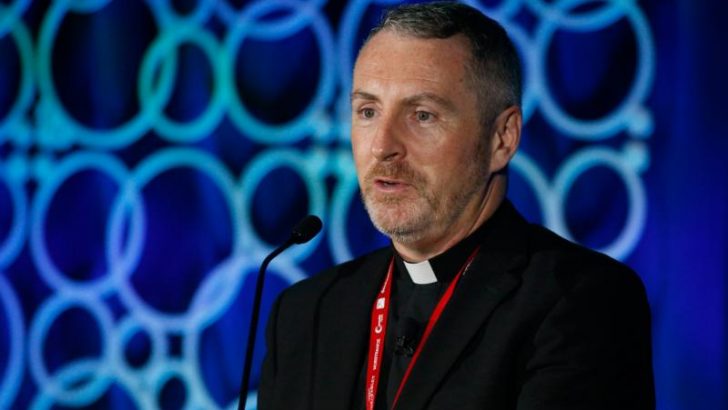The Irishman who leads the Vatican office responsible for processing abuse complaints has revealed that if he were a layman with a son abused by a priest, he’d probably stop going to Mass.
Msgr John Kennedy also said that his office has seen a record 1,000 cases from around the world this year, including from countries it had not heard from before.
“We’re effectively seeing a tsunami of cases at the moment, particularly from countries where we never heard from (before),” according to Msgr John Kennedy. The Dublin diocesan priest is head of the discipline section in the powerful Congregation for the Doctrine of the Faith which processes the cases.
Overwhelmed
He said the department is today overwhelmed, struggling with a skeleton staff that hasn’t grown at pace to meet the four-fold increase in the number of cases arriving in 2019 compared to a decade ago.
“I know cloning is against Catholic teaching, but if I could actually clone my officials and have them work three shifts a day or work seven days a week,” they might make the necessary headway, said Msgr Kennedy.
Just before Christmas, Pope Francis took a step toward showing greater transparency with his decision to abolish the so-called ‘pontifical secret’ that governs the processing of abuse cases to increase cooperation with civil law enforcement.
“I suppose if I weren’t a priest and if I had a child who were abused, I’d probably stop going to Mass,” said Msgr Kennedy. “I’d probably stop having anything to do with the Church because I’d say, ’Well, if you can’t look after children, well, why should I believe you?’”
Guarantee
But he insisted that the Vatican was committed to fighting abuse and just needed more time to process the cases. “We’re going to look at it forensically and guarantee that the just outcome will be given,” he said in an interview.
“It’s not about winning people back, because Faith is something that is very personal,” he added. “But at least we give people the opportunity to say, ‘Well, maybe give the Church a second chance to hear the message’.”


 Michael Kelly
Michael Kelly Msgr John Kennedy
Msgr John Kennedy